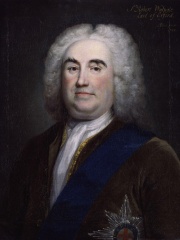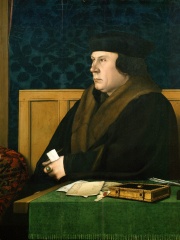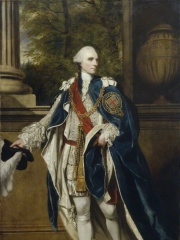



The Most Famous
PUBLIC WORKERS from United Kingdom
This page contains a list of the greatest British Public Workers. The pantheon dataset contains 15 Public Workers, 4 of which were born in United Kingdom. This makes United Kingdom the birth place of the most number of Public Workers.
Top 4
The following people are considered by Pantheon to be the most legendary British Public Workers of all time. This list of famous British Public Workers is sorted by HPI (Historical Popularity Index), a metric that aggregates information on a biography's online popularity.

1. Robert Walpole (1676 - 1745)
With an HPI of 71.96, Robert Walpole is the most famous British Public Worker. His biography has been translated into 81 different languages on wikipedia.
Robert Walpole, 1st Earl of Orford (; 26 August 1676 – 18 March 1745), known between 1725 and 1742 as Sir Robert Walpole, was a British Whig statesman who is generally regarded as the de facto first Prime Minister of Great Britain, serving from 1721 to 1742. His formal titles included First Lord of the Treasury, Chancellor of the Exchequer, and Leader of the House of Commons. Although the exact dates of Walpole's dominance, dubbed the "Robinocracy", are a matter of scholarly debate, the period 1721–1742 is often used. He dominated the Walpole–Townshend ministry, as well as the subsequent Walpole ministry, and holds the record as the longest-serving British prime minister. W. A. Speck wrote that Walpole's uninterrupted run of 20 years as prime minister "is rightly regarded as one of the major feats of British political history. Explanations are usually offered in terms of his expert handling of the political system after 1720, [and] his unique blending of the surviving powers of the crown with the increasing influence of the Commons". Walpole was a Whig from the gentry class who was first elected to Parliament in 1701 and held many senior positions. He was a country squire and looked to country gentlemen for his political base. Historian F. O'Gorman says his leadership in Parliament reflected his "reasonable and persuasive oratory, his ability to move both the emotions as well as the minds of men, and, above all, his extraordinary self-confidence". Julian Hoppit says Walpole's policies sought moderation, he worked for peace, lower taxes and growing exports, and allowed a little more tolerance for Protestant Dissenters. He mostly avoided controversy and high-intensity disputes as his middle way attracted moderates from both the Whig and Tory camps; his appointment to Chancellor of the Exchequer after the South Sea Bubble stock-market crisis drew attention to perceived protection of political allies by Walpole. Historian H. T. Dickinson sums up his historical role by saying that "Walpole was one of the greatest politicians in British history. He played a significant role in sustaining the Whig party, safeguarding the Hanoverian succession, and defending the principles of the Glorious Revolution (1688). He established stable political supremacy for the Whig party and taught succeeding ministers how best to establish an effective working relationship between Crown and Parliament." Some scholars rank him highly among British prime ministers.

2. Thomas Cromwell (1485 - 1540)
With an HPI of 71.27, Thomas Cromwell is the 2nd most famous British Public Worker. His biography has been translated into 45 different languages.
Thomas Cromwell (; c. 1485 – 28 July 1540) was an English statesman and lawyer who served as chief minister to King Henry VIII from 1534 to 1540, when he was beheaded on orders of the King, who later blamed false charges for the execution. Cromwell was one of the most powerful proponents of the English Reformation. As the King's chief secretary, he instituted new administrative procedures that transformed the workings of government. He helped to engineer an annulment of the King's marriage to Catherine of Aragon so that Henry could lawfully marry Anne Boleyn. Henry failed to obtain the approval of Pope Clement VII for the annulment in 1533, so Parliament endorsed the King's claim to be Supreme Head of the Church of England, giving him the authority to annul his own marriage. Cromwell subsequently charted an evangelical and reformist course for the Church of England from the unique posts of Vicegerent in Spirituals and Vicar-general (the two titles refer to the same position). During his rise to power, becoming Baron Cromwell, he made many enemies, including Anne Boleyn, with his fresh ideas and lack of inherited nobility. He played a prominent role in her downfall. He fell from power in 1540, despite being created Earl of Essex that year, after arranging the King's marriage to the German princess Anne of Cleves. The marriage was a disaster for Cromwell, ending in an annulment six months later. Cromwell was arraigned under an act of attainder (32 Hen. 8. c. 62) and was executed for treason and heresy on Tower Hill on 28 July 1540. The King later expressed regret at the loss of his chief minister, and his reign never recovered from the incident.

3. John Stuart, 3rd Earl of Bute (1713 - 1792)
With an HPI of 65.46, John Stuart, 3rd Earl of Bute is the 3rd most famous British Public Worker. His biography has been translated into 47 different languages.
John Stuart, 3rd Earl of Bute (; 25 May 1713 – 10 March 1792), styled Lord Mount Stuart between 1713 and 1723, was a British Tory statesman who served as the Prime Minister of Great Britain from 1762 to 1763 under George III. He became the first Tory to hold the position and was arguably the last important royal favourite in British politics. He was the first prime minister from Scotland following the Acts of Union in 1707. He was also elected as the first president of the Society of Antiquaries of Scotland when it was founded in 1780.

4. Lina Khan (b. 1989)
With an HPI of 32.76, Lina Khan is the 4th most famous British Public Worker. Her biography has been translated into 18 different languages.
Lina Maliha Khan (born March 3, 1989) is a British and American legal scholar who was the chair of the Federal Trade Commission (FTC) from 2021 to 2025. She is also an associate professor at Columbia Law School. While a student at Yale Law School, she became known for her work in antitrust and competition law after publishing the essay "Amazon's Antitrust Paradox" in 2017. President Joe Biden nominated her to the FTC in March 2021, and after her confirmation she became the youngest FTC chair ever that June. Following the 2025 New York City mayoral election, Khan was named co-chair of Zohran Mamdani's mayoral transitional team.
People
Pantheon has 4 people classified as British public workers born between 1485 and 1989. Of these 4, 1 (25.00%) of them are still alive today. The most famous living British public workers include Lina Khan. The most famous deceased British public workers include Robert Walpole, Thomas Cromwell, and John Stuart, 3rd Earl of Bute.
Living British Public Workers
Go to all RankingsDeceased British Public Workers
Go to all RankingsRobert Walpole
1676 - 1745
HPI: 71.96
Thomas Cromwell
1485 - 1540
HPI: 71.27
John Stuart, 3rd Earl of Bute
1713 - 1792
HPI: 65.46

